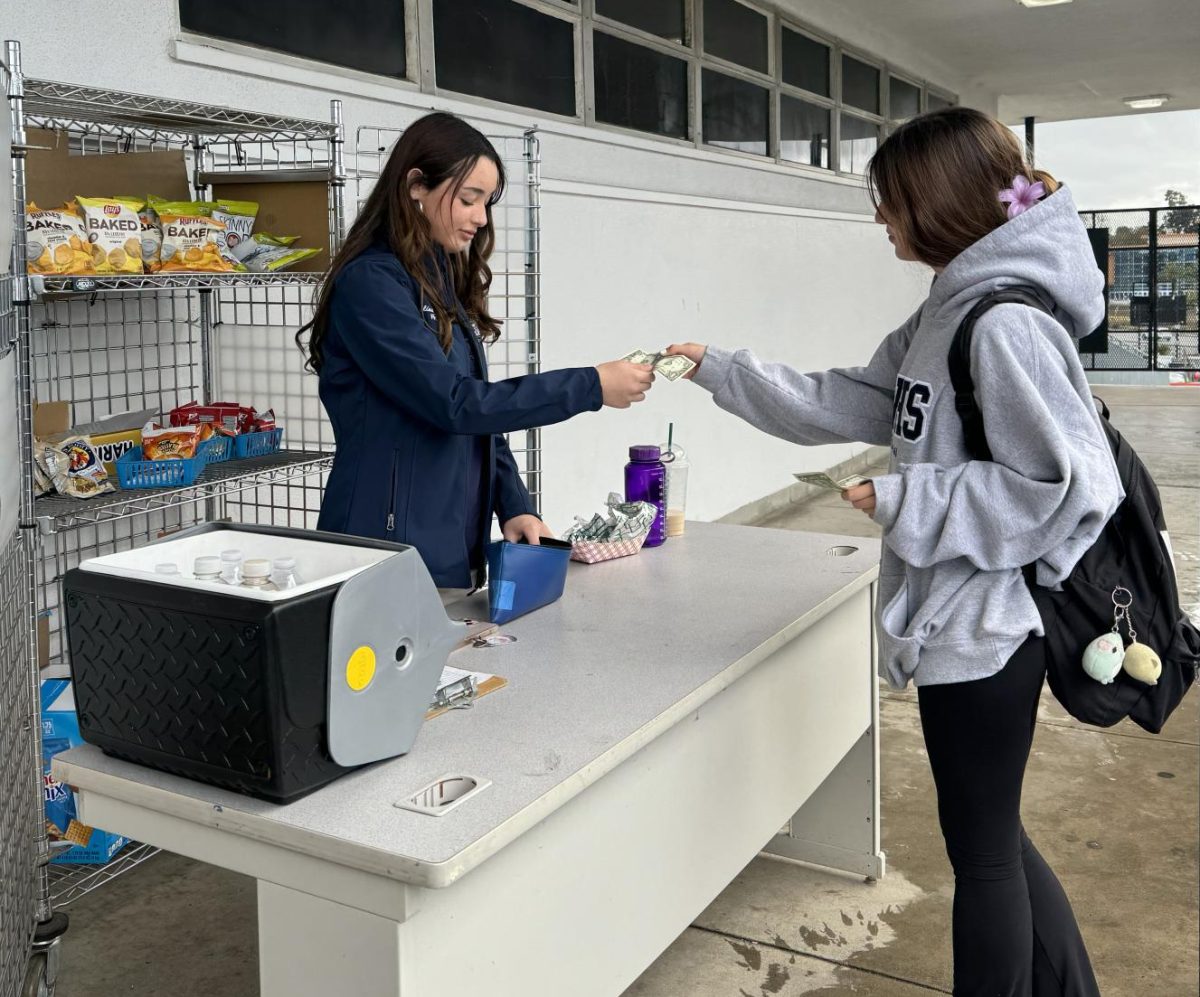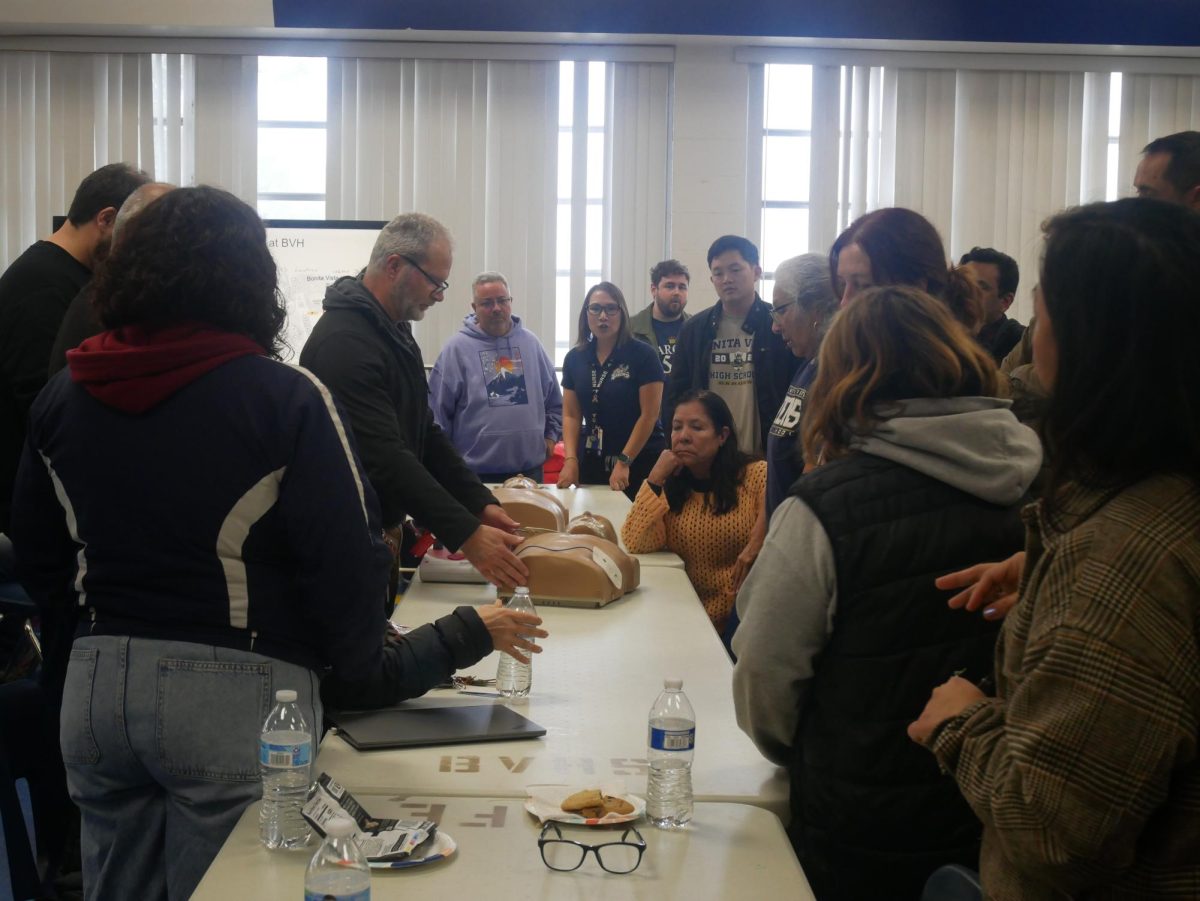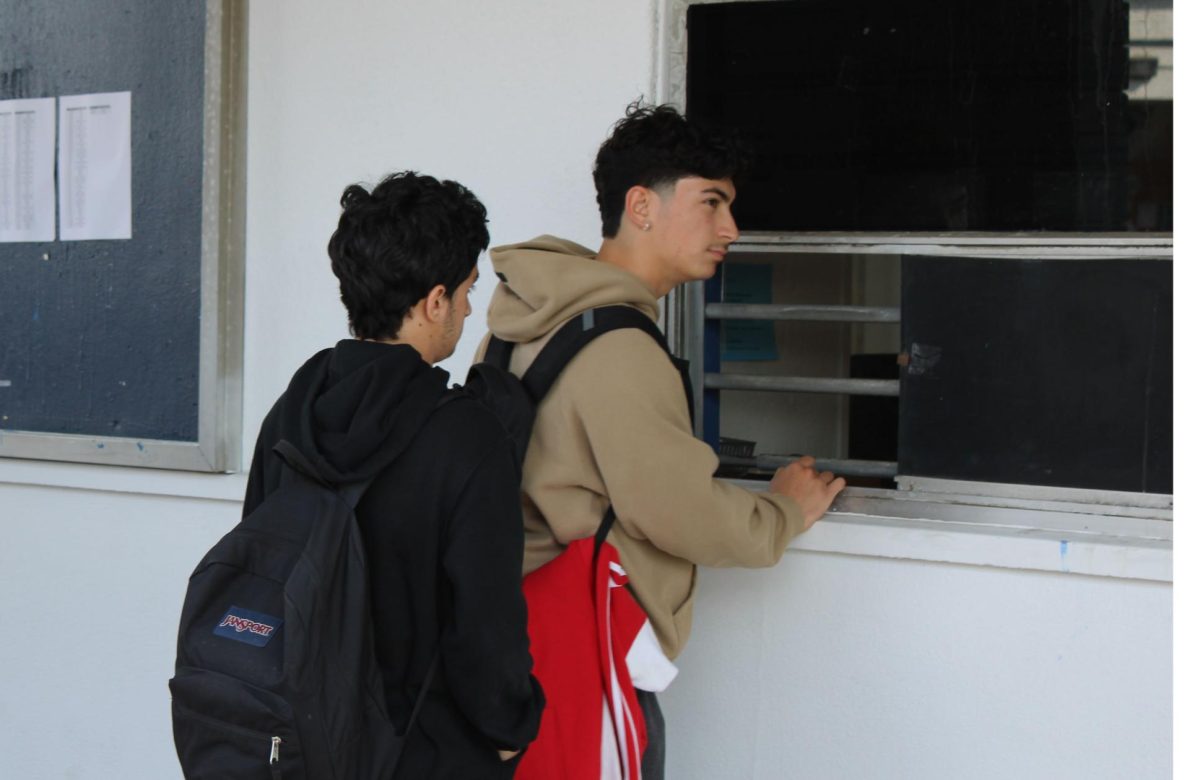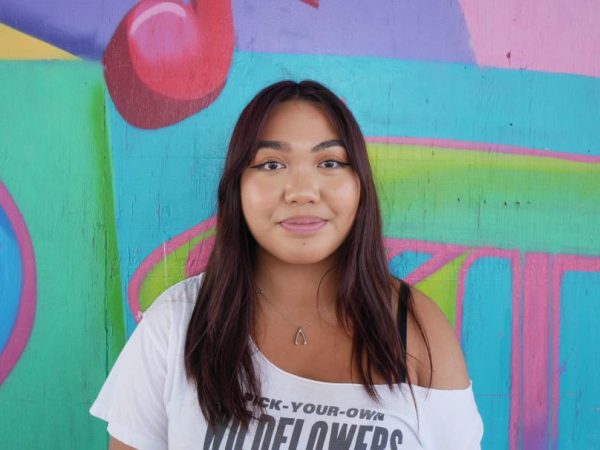Bonita Vista High (BVH) is undergoing a change with their food fairs, which are events in which clubs are allowed to sell a variety of food to raise money for their clubs. With the upcoming food fair that is occurring on Feb. 15, a new food policy will be implemented to reduce the portion sizes sold. BVH Task Force President and senior Ariel Villegas expresses her initial reaction when she became aware of the change.
“[The new policy] kind of came as a surprise. I only learned about the policy at the club president’s meeting [on Jan.17],” Villegas said. “I think the policy has been around for a while. However, the school hasn’t been as strict until now. The district created the policy, most likely with the help of parent participation.”
The implementation of the policy by the district marks an interesting shift in the school community. BVH Task Force Treasurer and senior Kaleb Mayorga explains the overall context of the food policy and what it will enforce to all clubs, while highlighting what he believes will be negatively affected as a result from this change.
“The food policy is being implemented to control the calorie intake of students. That forces us to find healthier alternatives, or sell in smaller portions. Smaller portions will negatively affect budgeting because people will be less likely to buy more, so the clubs will [most] likely cut down the budget,” Mayorga said.
Students will now have to pay the full amount of money for a normal sized portion, only to receive reduced portions of food. Villegas notes that even though she personally believes the new food policy should have not been implemented, she believes this decision was made in thought of benefiting students.
“As teenagers, we should be able to control our own eating habits and this policy interferes with that. I do however believe that the district is creating the policy to do good, not to negatively affect students,” Villegas said.
The introduction of the food policy within the school campus has sparked a diverse range of opinions, turning the issue into a controversial topic among BVH students. Villegas adds that while the change might not be overwhelmingly drastic, it does bring about a shift in the operational dynamics of school clubs as it causes clubs to either reduce portions or completely shift the type of items they sell.
“Clubs will have to adjust to the policy and sell different products or adjust their pricing. I don’t think it’s a huge adjustment, but it’s still a little change that has to be made,” Villegas said. “With the smaller portions, clubs will have to buy more of the products in order to satisfy enough students. For foods that don’t have smaller options, clubs are either forced to buy other products to sell or cut the product in half and preserve it in different containers.”
The policy introduces a set of challenges that can significantly impact the clubs’ operations and effectiveness. IMPACT Club President and junior Katelynn Flores Alatorre highlights the problems which can occur.
“Problems this will create for BVH clubs like mine is less profit. If we sold food and were forced to sell less of it, we would have to sell it for a cheaper price. The whole point of a food fair is for clubs to raise money, so if we have to sell things at a cheaper price, it conflicts with our monetary goals,” Flores Alatorre said.
The impact of reduced portion sizes extends beyond just issues with student clubs. According to Mayorga, the new food policy could also pose a personal challenge, particularly for individuals already grappling with self-esteem issues, regarding the way they look. Smaller portions not only affect physical well-being but also contribute to heightened sensitivity about body image among students in the school community.
“I feel personally targeted by this because now I feel ashamed of buying the larger proportions of food and eating it all. This is causing me great insecurity about my body as I was already insecure about my weight and the way I look,” Mayorga said.
Despite the challenges that the new food policy presents for the majority of clubs, Flores Alatorre sheds light on the positive perspective of this change. According to her, the policy has the potential to serve as a solution to the prevalent issue of food waste, which is common on the BVH campus, specifically after food fairs occur.
“Some solutions this will allow for is possibly food waste. At previous food fairs, I would see some students waste their food or just throw it away. So, maybe with smaller portions, most of the population will finish all their food,” Flores Alatorre said.
Not only does reducing the portion sizes contribute to minimizing food waste, but additionally Villega states that providing appropriately sized portions aims to support healthier eating habits among students during school hours. This fosters a positive impact on their overall well-being.
“The policy is trying to get schools to sell food that adheres to the daily calorie intake. Therefore, during food fairs, clubs are also forced to adhere to that as well. The district created the policy to keep students healthy,” Villegas said.
Overall, the intentions behind the new food policy are geared towards the well-being of the BVH community. Mayorga emphasizes that while there are a few drawbacks associated with the policy changes, the positive outcomes are substantial and ultimately outweigh the negatives.
“I think that the policy has good intentions of trying to create a more healthy community yet there are many downsides to the policy that could outweigh the positives. I feel like if there were statistics provided with the decision to show the actual impact of food fair it would be pretty helpful in showing the positives of the policy,” Mayorga said.








